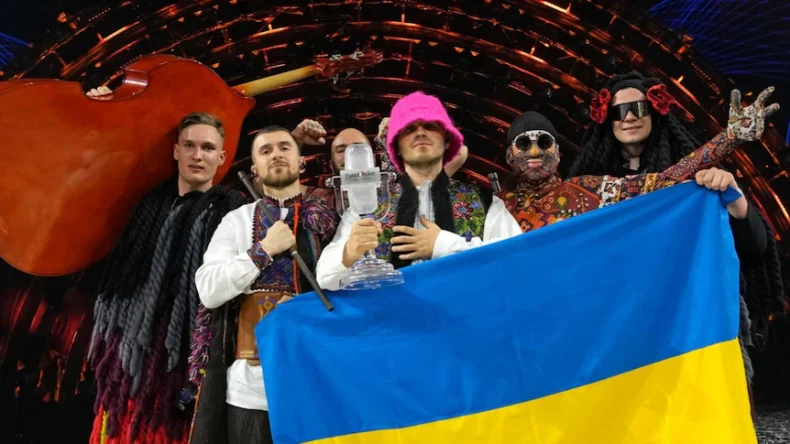The UK steps up to host Eurovision Song Contest as Ukraine is declared a risky host nation by European Broadcasting Union.
The United Kingdom reluctantly agreed to host Eurovision Song Contest next year as Ukraine remains amidst the war with Russia.

The Eurovision is the world’s largest live music show contest. It has thousands of live audiences and millions of viewers globally.
The winners are guaranteed long-lasting success to skyrocket their music careers. Eurovision 2022 saw over 180 million views, being the only non-sporting event with such a massive audience and hype.
Italy held the Eurovision Song Contest 2022 in Turin, where Kalush Orchestra, a folk-rap group from Ukraine won first place.
Traditionally, Ukraine is supposed to hold Eurovision 2024, were it not for the extreme dilemma of the Russian invasion.
Last month, a group of public broadcasters and security specialists concluded that Ukraine won’t be able to host the famed extravagant TV event, which requires a full year of planning, thousands of people, and has historically brought in millions of dollars in tourism money.
This is because of the security risks created by Russia’s war.
Officials revealed on Monday that the United Kingdom will host Eurovision 2024 in place of Ukraine. The BBC will collaborate with representatives of Ukraine’s official broadcaster, UA: PBC, in order to incorporate Ukrainian features into the production.
Sam Ryder of the UK finished in second place in the song competition, making the UK an acceptable host nation on behalf of Ukraine.
“The 2024 Eurovision Song Contest will not be in Ukraine but in support of Ukraine,” said Mykola Chernotytskyi, the head of UA: PBC’s managing board.
“I am confident that together we will be able to add Ukrainian spirit to this event and once again unite the whole of Europe around our common values of peace, support, celebrating diversity and talent,” he commented.
The BBC has stepped in to host the event for other nations in the past and has done so more frequently than any other broadcaster altogether.
In addition to Birmingham in 1998, Edinburgh in 1972, Brighton in 1974, Harrogate in 1982, and London in 1960, 1963, 1968, and 1977, these cities also held the Eurovision Song Contest.
It was the “strong wish” of Prime Minister Boris Johnson’s spokesman for Ukraine, the winner this year, to host the 2024 competition, and he felt it was very sad that this was no longer possible with the BBC filling in as host.
“It is a matter of great regret that our colleagues and friends in Ukraine are not able to host the 2024 Eurovision Song Contest.
Being asked to host the largest and most complex music competition in the world is a great privilege,” said Tim Davie, director general of the BBC.
“The BBC is committed to making the event a true reflection of Ukrainian culture alongside showcasing the diversity of British music and creativity.”
According to a feasibility analysis, Ukraine’s broadcaster could not provide “the security and operational guarantees essential for a broadcaster to host and organize” Eurovision, according to a June statement from the European Broadcasting Union (EBU), which runs the competition.
In a letter opposing the choice and requesting further consultations, the culture minister of Ukraine and two previous Eurovision winners made the case that Ukraine would be able to uphold its obligations.
No matter where the tournament is held in 2024, the EBU has made it clear to assure that Ukraine will be honored and represented.
As the outcome of a lengthy bidding procedure that officials claim will begin this week, the precise host city has not yet been chosen.
Local officials from more than a dozen places have already expressed interest in applying, so they anticipate the bidding to be competitive.
Cities hoping to host the event must prove they can fulfil certain requirements. Turin was able to host the event after meeting the expectation of a venue that can host at least 10,000 audiences in an area not very far from the airport.













